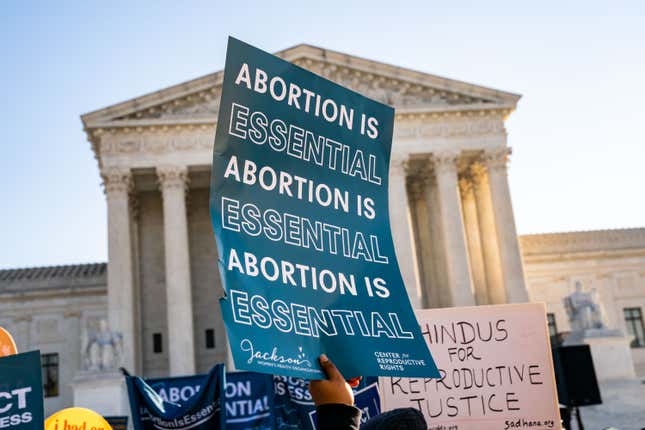No Abortion Ban Is ‘Generous,’ Despite What Republicans May Say
One Florida lawmaker described a 15-week abortion ban as "generous," because "life begins at conception." Do not buy this framing.
AbortionPolitics

Florida state legislators are in the process of fast-tracking a 15-week abortion ban—which mirrors Mississippi’s bill currently before the Supreme Court—to the desk of Gov. Ron DeSantis (R), who’s already expressed his support for it. And in the face of the usual backlash that comes with state attempts to force pregnant people to give birth and reduce them to government-controlled ovens, Republican lawmakers aren’t just getting defensive — they’re literally patting themselves on the back.
Republican state Rep. Dana Trabulsy told the Washington Post this week that 15 weeks to get an abortion—a time frame during which some people still may not realize they’re pregnant, or may have just realized they are and begun the maze-like logistical process of trying to get an abortion—is actually a “long time.”
“Because I believe life begins at conception, that’s [the 15-week ban is] generous,” Trabulsy said.
Trabulsy’s colleague in the state Senate, Sen. Kelli Stargel, echoed the sentiment, insisting that the ban’s proponents aren’t “banning anything” (they literally are) or “being mean.”
-

-

-

-

-

-

-

-

-

-

-

-

-

-

-

-

-

-

-

-

-

-

-

-

-

-

-

-

-

-

-

-

-

-

-

-

-

-

-

-








































